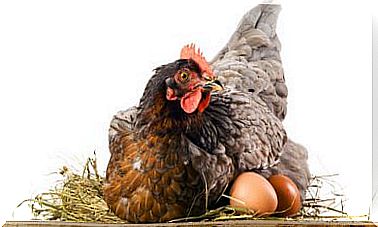Can Turmeric Help Prevent Canine Obesity?

When it comes to canine obesity, we must accept that many similar criteria apply to both humans and dogs. Thus, what we eat and how much we eat has a major impact on overall health and well-being. The same is true for our dogs.
If you or your pet need to lose weight, the main strategy to achieve the weight change is to create a calorie deficit. If a body is burning more calories than it consumes, weight loss will occur over time.
However, there are other ways that food can have an impact on our pet’s weight and, actually, its overall health. Thus, the term functional food has been coined for foods that benefit health, such as turmeric.
What is turmeric?
Turmeric, responsible for the yellow-orange color of Indian curries and mustard, derives from the roots of the Curcuma longa plant , which is a member of the ginger family. Curcumin, which has powerful antioxidant and anti-inflammatory properties, is the most active component in turmeric and is primarily responsible for its health benefits.

The problem of canine obesity
Obesity is a health problem, as it is a risk factor for many chronic diseases. These diseases include heart disease, diabetes mellitus, osteoarthritis, and others.
In obesity, an excessive proliferation of adipose tissue occurs, which is associated with serious metabolic disorders. Immune cells called macrophages that secrete pro-inflammatory mediators, known as adipokines, infiltrate the accumulation of adipose tissue. So obesity is recognized today as low-intensity chronic inflammation.
How does turmeric work against canine obesity?
Turmeric exerts different effects on adipose tissue in obesity. There are several scientific reports that show that curcumin can inhibit the differentiation of the cellular precursors of adipose tissue, the preadipocytes.
By this mechanism, curcumin can reduce the number of adipocytes and the fat content of adipose tissue. Turmeric has also been reported to inhibit the proliferation and infiltration of macrophages into adipose tissue. Finally, it is also recognized that it can suppress the inflammatory secretion of adipokines in adipose tissue.
Very interesting is its effect on the antioxidant response in adipose tissue. There are studies that reveal that curcumin, upon entering cells, releases an intracellular protein – normally sequestered by a group of other proteins – that induces the expression of hundreds of cytoprotective genes. This induces the expression of genes that include antioxidant enzymes and other mediators that limit the immune response and inflammation.

Turmeric in food to avoid canine obesity
It is not uncommon to find turmeric used in some commercially available dog foods and treats. Along with its magnificent health properties of turmeric, it can also act as a flavor enhancer. Because it is a spice, turmeric is easy to add to any food.
Bioavailability
To take advantage of all the benefits of turmeric, it is essential to know what are the best conditions that promote its absorption, that is, its bioavailability.
It is important to know that turmeric does not have an optimal rate of absorption when taken alone. For this reason, sprinkling the powder of this spice in your dog’s food bowl will not work; you have to add an oil base.
Add black pepper
You may have noticed that all recipes with turmeric contain black pepper. There is a good reason for that! It has been discovered that a phytochemical contained in black pepper – called piperine – can increase the absorption of curcumin by up to 2000%. Furthermore, black pepper also has antibacterial and antioxidant properties.
Add healthy fat
Healthy fat is also important for improving the bioavailability of curcumin by adding a healthy fat like coconut oil.

Turmeric dosage
While most dogs do not experience any side effects from turmeric, it is always better to be safe than sorry. The recommended dose of turmeric for dogs is 30 to 40 milligrams per kilogram of body weight per day.
Experts also claim that turmeric tends to leave the body fairly quickly. Therefore, it is recommended, instead of a single dose, to add small amounts to your dog’s diet with each meal throughout the day.
Turmeric side effects
Because turmeric is completely natural, it is generally considered very safe. However, there are some potential side effects.
First, turmeric is a blood thinner, making it a powerful agent for reducing the risk of stroke and heart attack. However, if your dog is already taking another medication that is also a blood thinner, this could present some problems.
Additionally, turmeric is a binding agent, making it a great remedy for dogs with diarrhea. However, if your dog drinks too little water, it could lead to constipation.
Because turmeric for dogs has so many wonderful qualities, you may think it’s best to err on the side. Please do not do this! Always consult with your veterinarian about the appropriate dosage for your dog’s individual needs.









